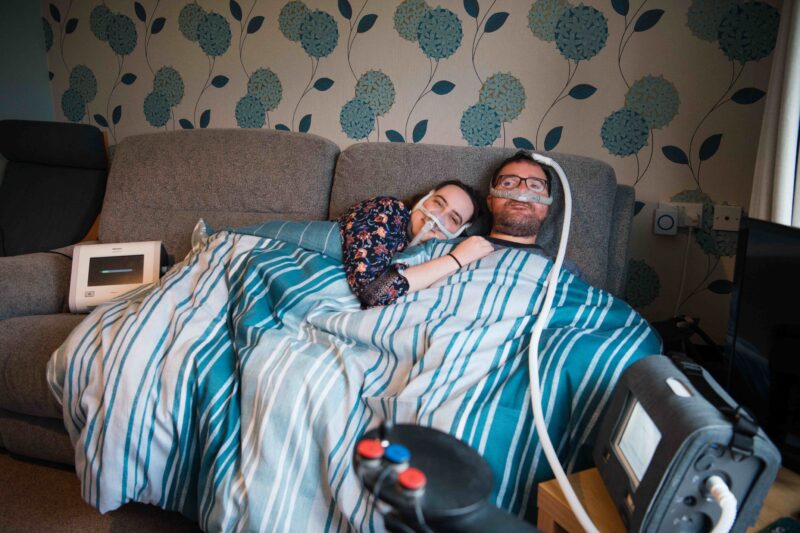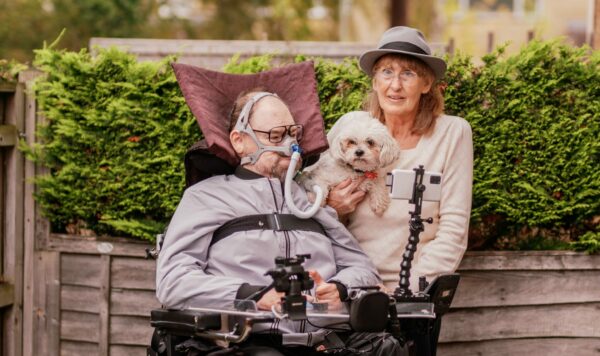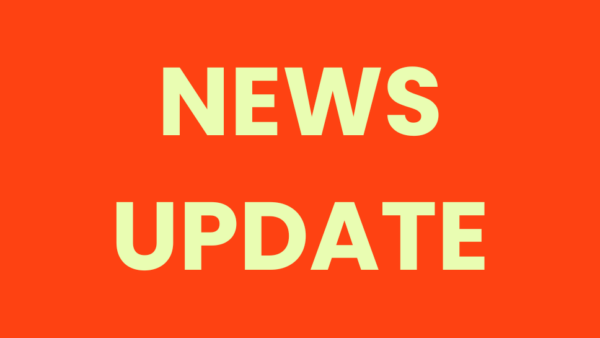When Esmae and Grace were diagnosed with limb-girdle muscular dystrophy 2A (LGMD2A), their dad Dean was determined to help. After his daughter’s application for Personal Independence Payment (PIP) was rejected, Dean turned to MDUK’s free helpline for some much-needed support.
“They encouraged us not to downplay the worst days”: Dad Dean reflects on helpline’s invaluable support
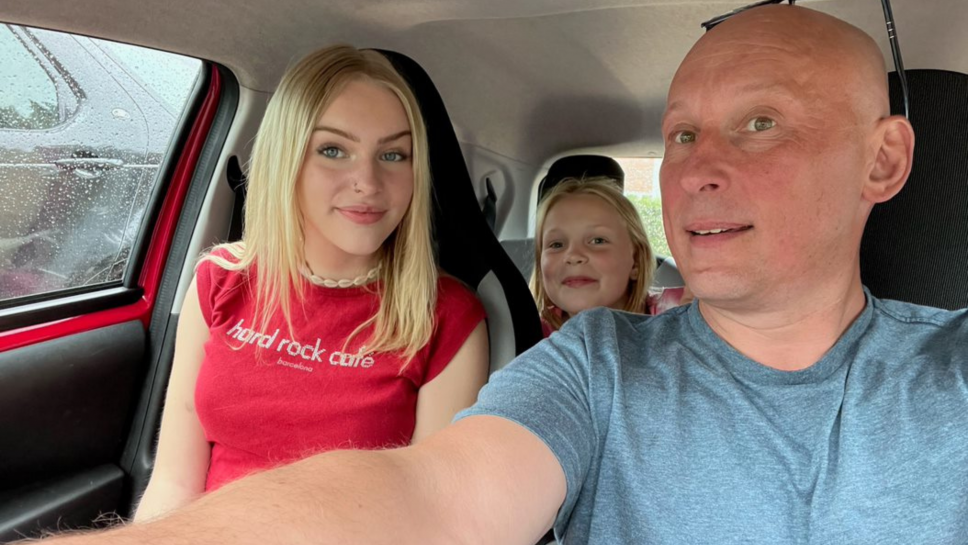
When we first learned that Esmae and Grace both had limb-girdle muscular dystrophy, we found the diagnoses shocking and overwhelming.
Once we had time to catch our breath, I began figuring out what kind of support they were entitled to. I submitted an application for Personal Independence Payment (PIP) on Grace’s behalf but shockingly, it was rejected.
Thankfully, we had someone to turn to; MDUK. Without the charity’s advocacy team, I think we would have really struggled – in fact, I wish I had used more of their services from the very start.
About Esmae, Grace, and the whole family
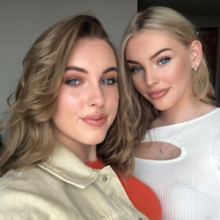
My eldest daughter, Esmae is 23 years-old and lives in Liverpool with her boyfriend and their dog.
Esmae’s always been a really hard worker and she and her boyfriend recently got a house together. They love going on nights out, planning exciting holidays, and having weekends away – and they’re always carrying out home improvements.
My second eldest daughter, Grace, is a sensitive and very thoughtful 18-year-old. She loves going on adventures and enjoys her part-time job as a tennis centre supervisor.
The pandemic and lockdown were particularly hard for Grace; partly because her diagnosis was so recent. She was very emotional and withdrawn, but now she’s looking forward to the future. It won’t be long now until she’s off to study Media Studies at Portsmouth University.
Esmae and Grace also have a younger brother, Sam aged 16. Their mum Monique and I are separated, and I’ve since remarried. My wife Kate and I have two children, Millie who’s eight and Harry who’s six – plus our dog, Bruno the pointer.
Sisters diagnosed with muscular dystrophy within a year of each other
Grace was diagnosed with limb-girdle muscular dystrophy in the autumn of 2019, when she was 15. Only a year later, Esmae was diagnosed with the same condition when she was 20 years old.
We all found the diagnoses quite a shock. Grace was a toe walker when she was very young; meaning she walked on her toes and avoided putting much weight on the rest of her feet. I remember Monique and I trying to seek help about it at the time. But after being passed around the orthopaedic department and eventually referred to a neurologist, nothing came of it.
When we learned about Esme and Grace’s conditions, Sam received some blood tests to see if he also had the condition – his results came back negative. Millie and Harry were too young to be tested and so far, they’ve had no symptoms.
It was difficult to navigate all the different departments and specialists, especially at the beginning. Great Ormond Street Hospital were fantastic with Grace; however, we have struggled more with adult services.
Help with applying for financial support
Grace has mobility issues relating to her condition and she can struggle with lifting things, bending down, and climbing stairs and inclines. Esmae also has mobility challenges and struggles with stairs too.
When applying for Personal Independence Payment (PIP) for Grace, I initially made the application without any assistance. I had no idea how hard it would be and despite filling it out to the best of my abilities, the application was rejected.
I reached out to MDUK and their advocacy team through their free helpline, and they helped me to challenge the decision.
“They encouraged us not to downplay how difficult things could get for the girls on their worst days.”
They coached me on how I could best communicate our situation and write an effective supporting letter. They encouraged us not to downplay how difficult things really are for Grace and Esmae on their worst days; they were just really helpful and I was so grateful for their support!
Thankfully, the initial decision was overturned. Grace received the enhanced rate for both the daily living component and the mobility component. Later, MDUK also supported me in writing Esmae’s application and we were able to secure her mobility support.
Discovering “muscular dystrophy life hacks”
Alongside assistance with the girls’ PIP applications, the MDUK team offered me emotional support, too.
They were able to put me in touch with one of their peer support volunteers, a father who was in a similar position to me; trying to find the right support for his children living with muscle-wasting conditions.
They shared their experiences with me and offered some suggestions for how I could help Esmae and Grace in the future; I like to call them my ‘muscular dystrophy life hacks’! It was great to be able to speak to someone who really understood what we were going through as a family.
I’ve also watched and attended some of the Muscles Matter seminars hosted by MDUK, these were really insightful and helped to give me a better understanding of my daughters’ condition.
“I wish I had used more of MDUK’s services”
My advice to someone facing a similar situation would be to use MDUK’s services – especially in the early days after a diagnosis. I wish I had used more of their services in the beginning.
Being diagnosed with muscular dystrophy can be a very overwhelming and frightening time. As a father, you want to do all you can to support your children – MDUK has the knowledge and skills in order to help you do it.
We understand that a diagnosis of a muscle-wasting condition can change everything, and there are challenges when you live with a progressive condition. Having access to the right information and advice can make all the difference.
Our Information, Advocacy and Care Team are here to support you. Call our free helpline on 0800 652 6352 (open 10am – 2pm, Monday to Friday) or email info@musculardystrophyuk.org.
You can also connect with peer support volunteers to chat about how you’re doing, or join the MDUK Parent Support Group, which is a supportive, safe environment where you can share your experiences, ask questions, get advice, and talk about the issues that matter to you.
